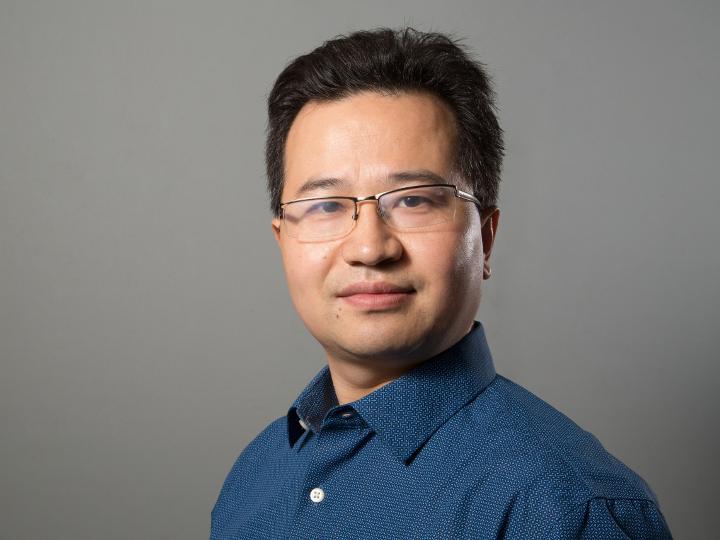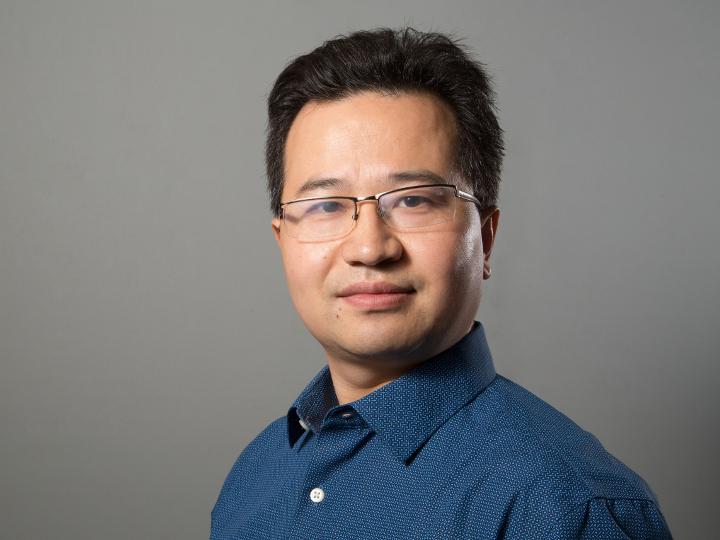
Credit: University of Houston
An engineer from the University of Houston has received a $500,000 CAREER award from the National Science Foundation to develop artificial muscle and tendons for dexterous, compliant and affordable prostheses.
Zheng Chen, Bill D. Cook Assistant Professor of mechanical engineering, said the resulting prosthetics would be more comfortable and work more efficiently than current models, which involve motorized metallic parts.
Chen, director of the Bio-inspired Robotics and Controls Lab at the UH Cullen College of Engineering, works with smart materials to devise improved prostheses. These smart materials – Chen works with dielectric elastomers – have built-in actuation and sensing capabilities, allowing them to more closely mimic human muscles.
The project involves bio-inspired design, fabricating the device and developing a mechanism to control movement of prosthetic hands, using a material which can be activated by an electrical voltage.
Chen and his colleagues have developed a prototype of artificial muscle and tendon structure. "It achieves some performance, but we need to improve the performance," he said. "It is an integrated sensor and actuator, so the person can sense objects, grasp and participate in other activities."
He will use nanotechnology to push the material to achieve the necessary performance; it then will be used to construct artificial muscle and tendons.
NSF CAREER awards are granted to promising junior faculty members who exemplify the role of teacher-scholars, and recipients also do educational outreach to promote a better understanding of science and technology. In addition to his research, Chen will work with graduate and undergraduate students to train next-generation engineers to work with modeling and fabrication of devices using smart materials and structures.
Chen said he will develop a graduate-level class involving smart materials and structure. His lab also will provide an environment for undergraduate students working on senior design projects, he said.
###
Media Contact
Jeannie Kever
[email protected]
713-743-0778
@UH_News
http://www.uh.edu/news-events
Original Source
http://www.uh.edu/news-events/stories/2017/SEPTEMBER%2017/09282017Chen-Artificial-Muscle.php





